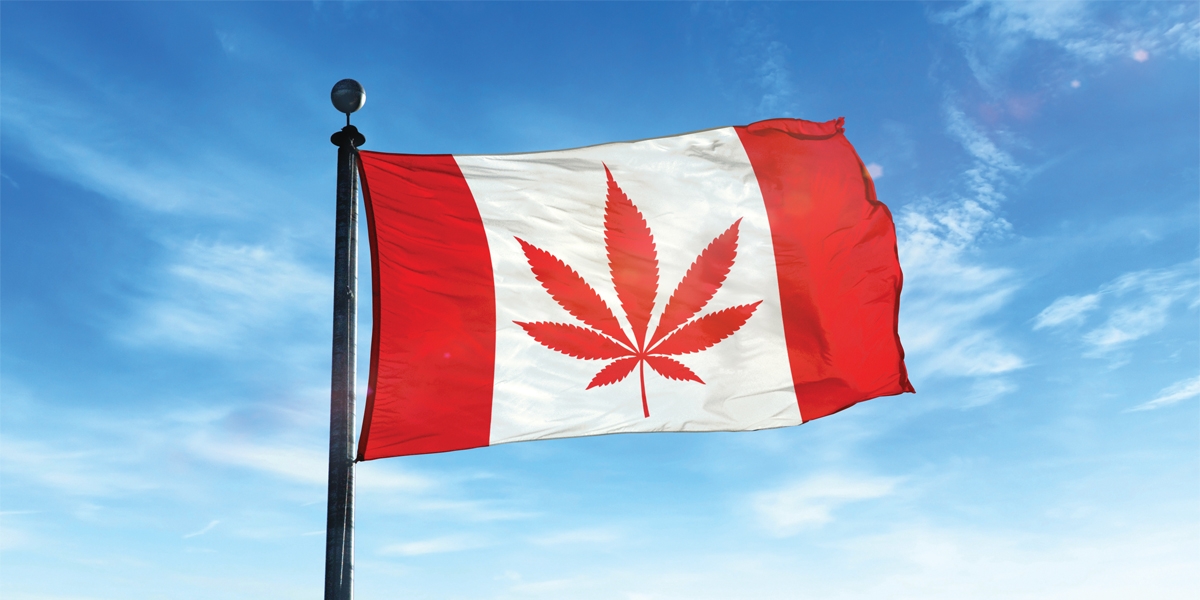
Marijuana and its economic value in Canada
by Tia M., editor and contributor at AskGrowers
The Government of Canada legalized weed in 2018 and instantly made millions of people thrilled and excited about the big news. Marijuana is now available for both recreational and medical purposes, which means that adults can cultivate, own, and consume pot whenever they want.
But the legalization in Canada did not occur only to please the people. On the contrary, there are so many impacts of the marijuana business on the country’s economy, and local authorities are well aware of that. The decision was made based on various criteria and real-world data, so it’s interesting to see what the legalization of weed really means to the Canadian economy.
Background Information
The legalization of pot in Canada may seem like an ancient topic, but the truth is that Canada is only the second country in the world to fully legalize weed production and consumption. The first country to do that was Uruguay, as they made marijuana legal back in 2013. It may sound surreal, but the Netherlands hasn’t actually legalized pot and it still lags behind Canada in that respect.
So, what’s the story behind cannabis and Canada?
A national poll conducted by Nanos Research in 2016 showed that seven in ten Canadians were in favor of legalization. But that is only one side of the story. The fact remains that Canada had a few more reasons to legalize weed and make it universally available. In the next few paragraphs, we will focus on key reasons to legalize marijuana and explain how the decision impacts the Canadian economy.
Weed and Canada: Market Size
Before we delve deeper into the analysis, it is important to see the current state of affairs. According to Statista, the cannabis market in Canada is worth around $7 billion this year. While it is true that the market is growing steadily, we must say that it’s not booming after legalization – the projected growth by 2025 is just above 4%.
However, other reports coming from renowned organizations such as Deloitte suggest that the Canadian weed market could climb to the staggering $22 billion in the following decade. While it is perhaps unreasonable to expect such tremendous growth, it is clear that marijuana and Canada make a fine combination with massive growth potential.
Why Did Canada Do It?
The effects of weed legalization in one country extend well beyond one or two aspects of the national economy. However, our goal is to cut the long story short and focus on the five most significant impacts of the process. Here they are!
1. Taxing the sale
Countries that fail to legalize marijuana lose a lot of money due to illegal import and sale. That’s not the case with Canada because the country is going to experience a huge influx of money by taxing the sale. The Government imposed a 10% tax on weed sales, so every bill will be contributing to the national economy from now on. If we know that the market is currently worth some $7 billion annually, it’s easy to calculate that Canada will get some $700 million per year from pot legalization.
2. Tourism
Amsterdam is a beautiful city – as well as The Netherlands in general – but is it really the main reason why so many tourists visit it every year? Well, not entirely. Millions of tourists visit The Netherlands simply because they can consume weed freely. Bearing it in mind, it’s fair to say that many tourists will choose to visit Canada for the same sort of reason. If you add marijuana to the equation, Toronto and Montreal and other cities will look even more beautiful.
3. The growth of eCommerce
Marijuana is now legal in Canada, but that doesn’t mean everyone’s on board. Many people still hold outdated views, often lumping cannabis users into harmful stereotypes. That lingering stigma is exactly why eCommerce has become such a game-changer. With the ability to Buy Weed Online, consumers can now shop discreetly and conveniently from home. This shift not only supports individuals who genuinely benefit from marijuana, but it also fuels the continued rise of Canada’s online retail sector.
4. Lower expenses
Drug-related crimes are the leading cause of police interventions across Canada. The situation is similar in all other countries since gangs are fighting to win over a larger piece of the market share. But now that weed is fully legalized, it is easy to figure out that Canada will be investing a lot less into law enforcement and anti-drug smuggling actions and equipment.
5. The commercial real estate market will thrive
Finally, the legalization of weed will also benefit the commercial real estate market. Official producers will replace illegal ones and they will have to respect the state of the art regulations in terms of cultivation, storage, and distribution of marijuana. In other words, companies dealing with this sort of business will be looking for new warehouses and distribution centers in order to do their part of the work flawlessly.
The Bottom Line
Canada is one of the first countries in the world to legalize marijuana for both medical and recreational purposes. They did it to indulge consumers, but there were also a few highly practical economy-related reasons behind the decision.
From tax income and real estate all the way to tourism and eCommerce, Canada will gain substantial benefits from legalizing marijuana. It will give a serious push to the country’s economy and we expect many other countries to follow in Canada’s footsteps in the years to come. The experiment is still in its earliest stages, but we believe it will be a successful one.
Photo: Shutterstock









